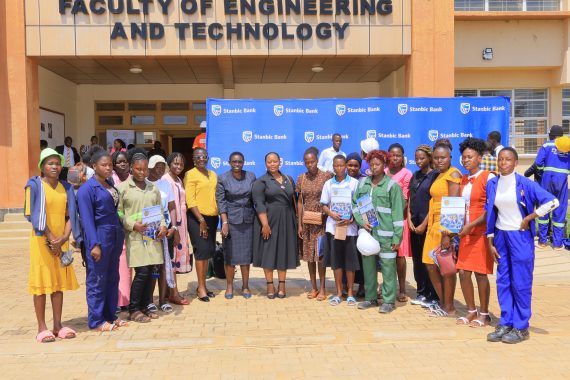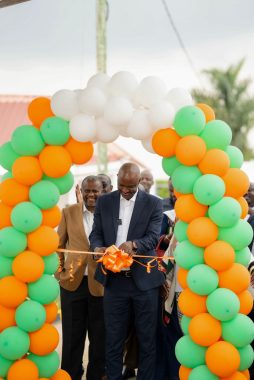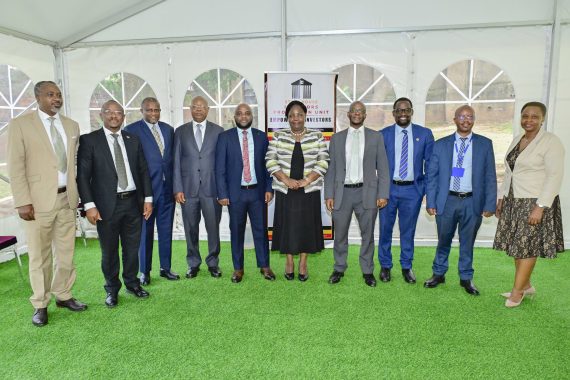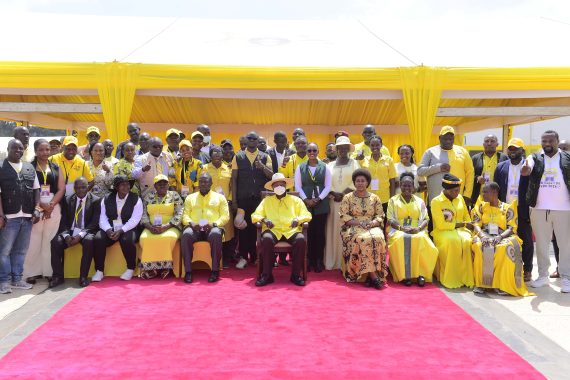Ninety-seven young people have completed an intensive six-month training programme at Busitema University in Tororo district, intended to provide them with marketable skills.
Fully funded by Stanbic Bank, the UGX 50 million programme aligns with the government’s National Development Plan to invest in skills development to empower young people and drive economic growth.
Speaking during the graduation ceremony, Eng. Dr. Joseph Ddumba Lwanga, the Dean Faculty of Engineering and Technology said, 100 students were initially enrolled, but three dropped out during the course of the study.
“The graduates represent 97% completion rate, an indicator of commitment of all the stakeholders involved including beneficiaries, sponsors and implementers. The beneficiaries were selected on merit from the different areas where Busitema University has operations. With the main campus at Busitema, other campuses are located in Nagongera, Namasagali, Arapai, Mbale, Pallisa and Kaliro districts,” Ddumba said.
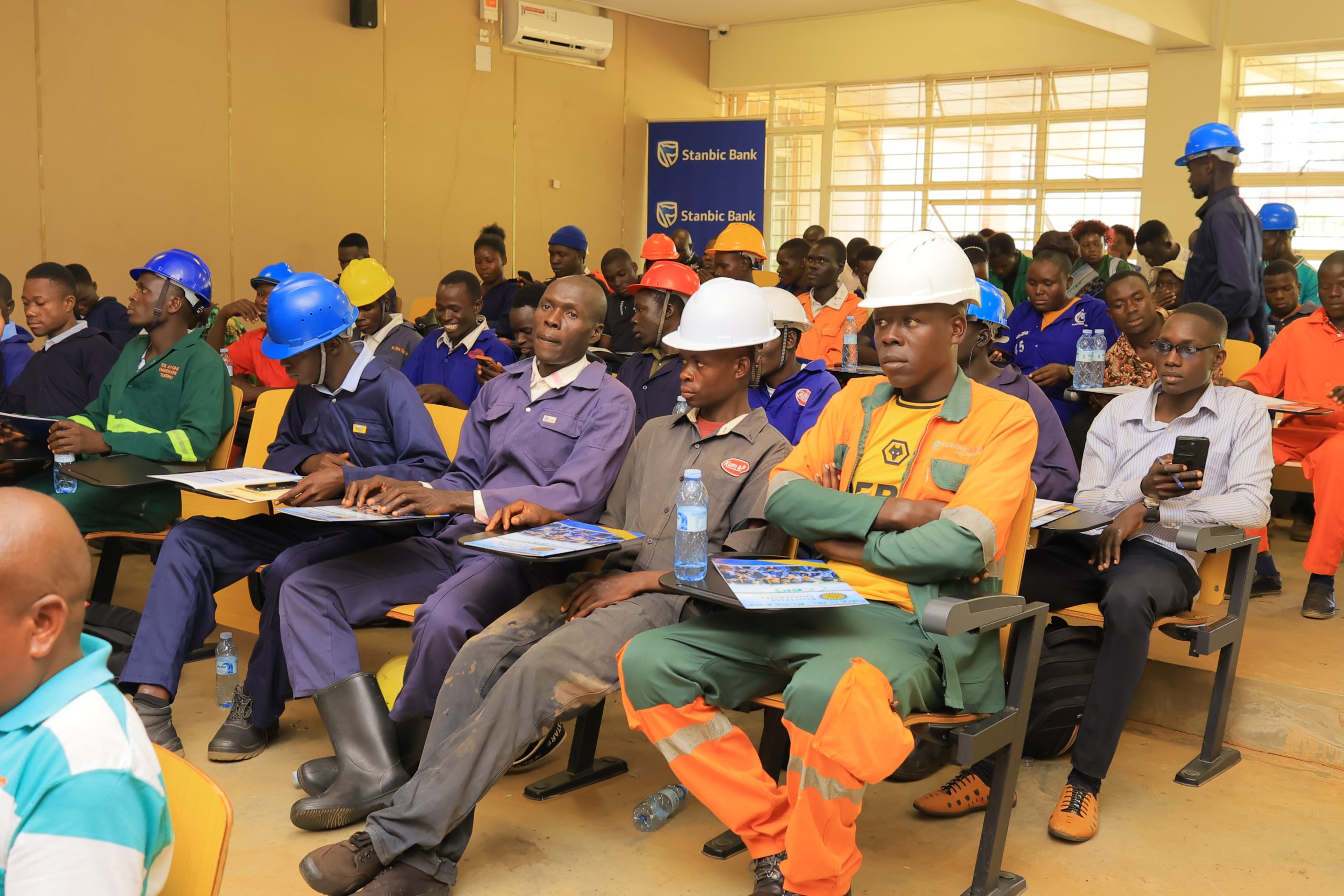
The courses include welding and metal fabrication; post-harvest handling, brick-laying and concrete practice, irrigation technologies and automotive repairs.
Diana Ondoga, Stanbic Bank’s Manager for Corporate and Social Investment, said, “It is a pleasure to witness these students graduating from the revitalized skills-based short-course training programme, a testament to what can be achieved when collaboration aligns with a shared vision for progress.”
The vocational training programme, introduced last year with 70 beneficiaries, expanded this year to offer 100 scholarship slots.

Ondoga said, “At Stanbic Bank, our commitment goes beyond banking; we are dedicated to supporting initiatives that build human capacity, stimulate economic growth, and uplift communities. It is a very important part of our purpose: ‘Uganda is our home, we drive her growth’. This program exemplifies this dedication by equipping talented young men and women with practical, industry-relevant skills, empowering them to take charge of their futures and contribute meaningfully to our nation’s development.”
Ondoga said the partnership with Busitema University is a strategic plan in ensuring that the country taps into its human resource potential and reap the benefits.
“In a competitive world where relevance often outweighs formal education, we chose to partner with Busitema University among numerous investment opportunities. While we have allocated funds to various initiatives, this partnership stands out because it aligns with the National Development Plan and outlines practical skills and industry readiness as essential for community development and individual success,” Ondoga said.
She said, “We have, over the past 10 years, run our flagship empowerment initiative called the Stanbic National Schools Championship, which has touched the lives of over 500,000 secondary school students. However, we asked ourselves; what about those out of school?”
Ondoga said, “That question led to the development of this programme, which provides an innovative solution to that challenge. It is designed with a clear focus on closing the gap between education and industry needs, ensuring our youth are job-ready and highly competent. We hope that each graduate will leverage the skills acquired to create sustainable livelihoods, inspire others, and build a brighter future for their communities.”
Prof. Paul Waako, the Vice Chancellor of Busitema University said, “Let your actions and work speak for you. As you step into the communities to serve, remember that the quality of your services will determine the success of your enterprises. Clients expect quality and good customer care. Without these, your qualifications alone won’t suffice.”
Among the graduates was John Siminyu, who said, “After completing S4, I stayed home helping my father with our poultry project, but we faced challenges and it collapsed. When I heard about this opportunity, I embraced it because I had always wanted to practice welding. Now, I already have a job, where I am applying my skills and learning more through mentorship.”
Christine Adikini, a graduate of irrigation technologies and resident of Buyende district, recently gave birth to twins. She said, “Studying while pregnant was quite challenging because of the intensity of the program. However, the instructors and colleagues were very accommodating. At first, I was afraid that I would be dropped because of my condition. I am grateful to the administration for enabling me to carry on with my course.”
Adikini’s husband, James Mugavu said, “my wife has already taught me how to implement irrigation methods to achieve success. We recently set up nursery beds which survived the harsh weather, because we were implementing the skills she had learned during her study. We believe this is going to be an opening to greater opportunities especially through various practices such as agriculture.” According to Ondoga, Stanbic is intentional about enhancing an all-around growth of women, youth and farmers, especially through supporting initiatives that uplift their standards of living – https://www.youtube.com/watch?v=F8LPleFqdJg&t=322s




